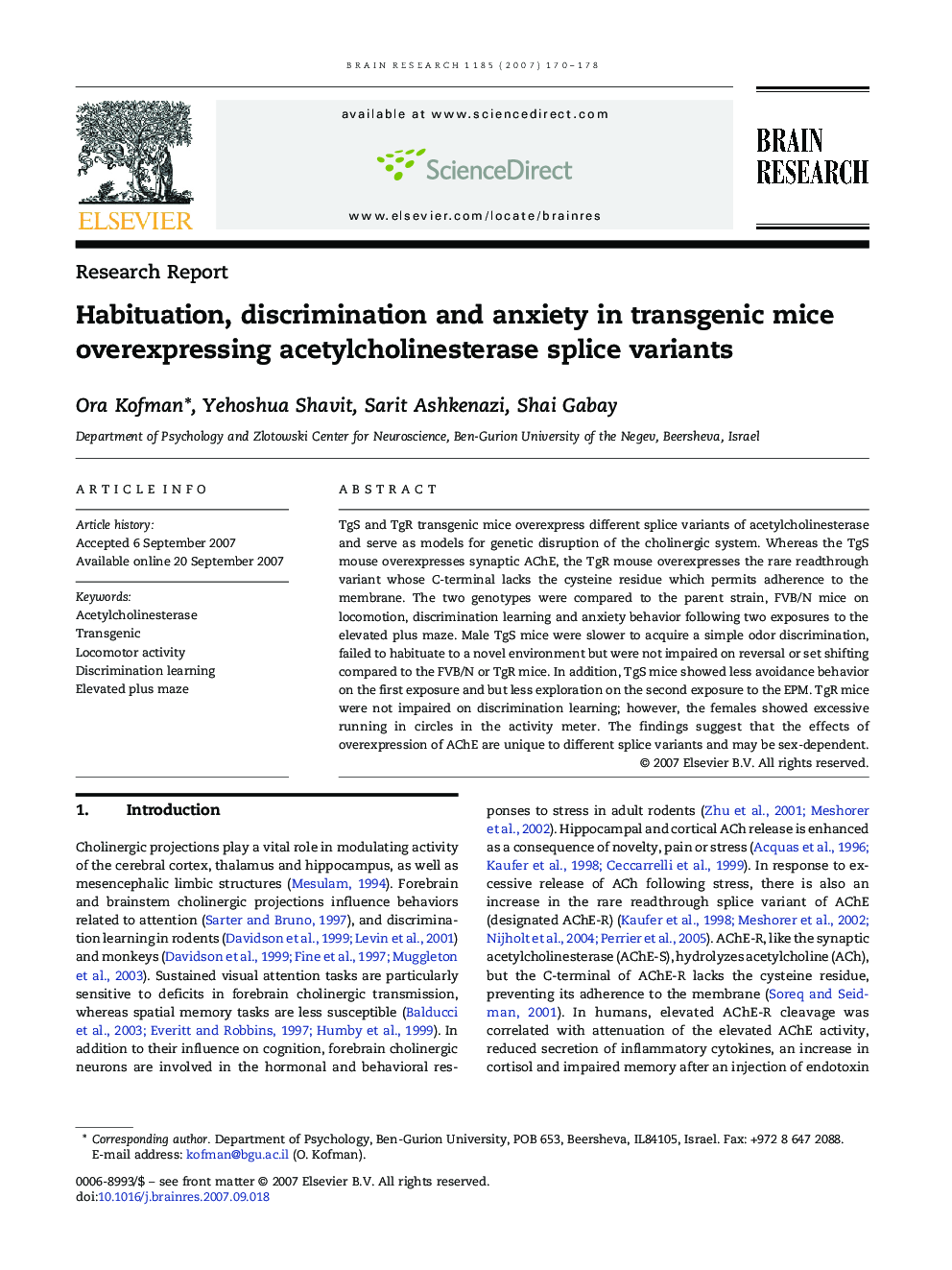| Article ID | Journal | Published Year | Pages | File Type |
|---|---|---|---|---|
| 4330234 | Brain Research | 2007 | 9 Pages |
TgS and TgR transgenic mice overexpress different splice variants of acetylcholinesterase and serve as models for genetic disruption of the cholinergic system. Whereas the TgS mouse overexpresses synaptic AChE, the TgR mouse overexpresses the rare readthrough variant whose C-terminal lacks the cysteine residue which permits adherence to the membrane. The two genotypes were compared to the parent strain, FVB/N mice on locomotion, discrimination learning and anxiety behavior following two exposures to the elevated plus maze. Male TgS mice were slower to acquire a simple odor discrimination, failed to habituate to a novel environment but were not impaired on reversal or set shifting compared to the FVB/N or TgR mice. In addition, TgS mice showed less avoidance behavior on the first exposure and but less exploration on the second exposure to the EPM. TgR mice were not impaired on discrimination learning; however, the females showed excessive running in circles in the activity meter. The findings suggest that the effects of overexpression of AChE are unique to different splice variants and may be sex-dependent.
